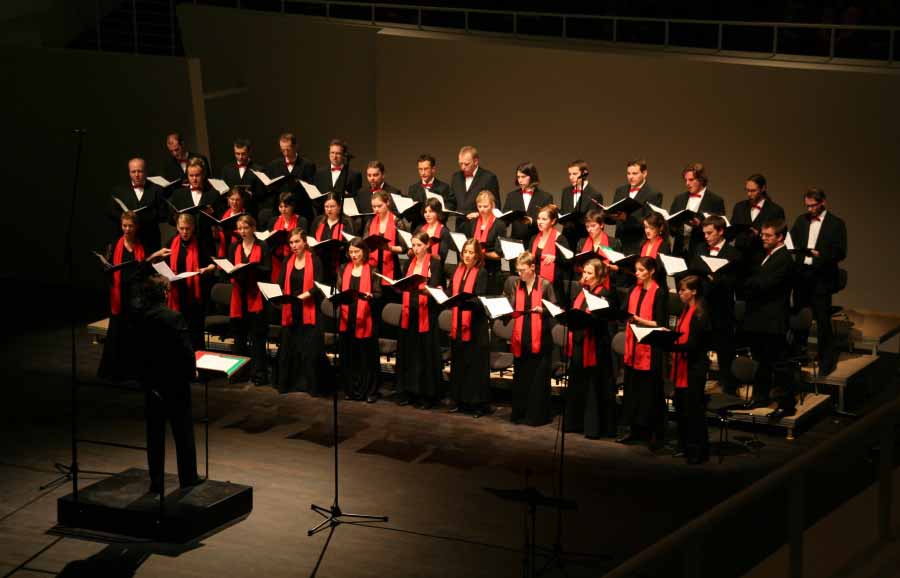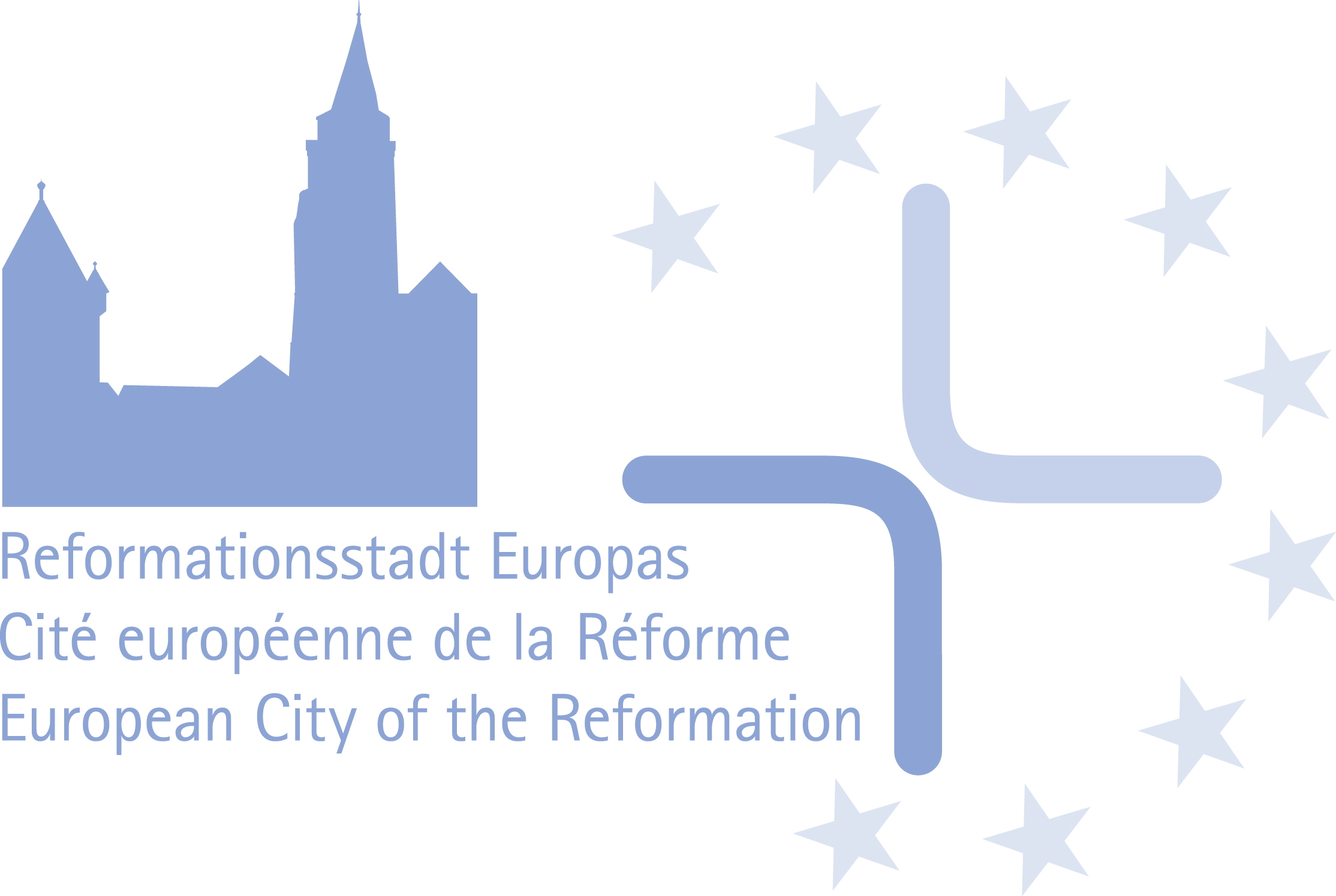Hans-Christoph Rademann was born on August 5, 1965, in Dresden. He is currently the director of the Dresdner Kammerchor and the Internationale Bachakademie Stuttgart, serves as Professor of Choral Conducting at the Hochschule für Musik Carl Maria von Weber, in Dresden, and holds the position of Artistic Director of the Erzgebirge Music Festival. Rademann studied at the Kreuzgymnasium, was a member of the Kreuzchor, and studied choral and orchestral conducting at the Musikhochschule Dresden. During his studies, he founded the Dresdner Kammerchor and still serves as its director. From 1999 to 2004 he served as the chief conductor of the Norddeutscher Rundfunk Chorus, and from 2007 to 2015 he was the chief conductor of the RIAS Kammerchor. Rademann has been Akademie Director of the Internationale Bachakademie Stuttgart, Since June 2013. His awards and Honours include the Johann-Walter-Plakette of the Sächsischer Musikrat 2014, the Saxon Constitutional Medal, 2008, and the Patrons’ Award and Art Prize of the City of Dresden, in 1994 and 2014 respectively. His recording initiatives have received the German Record Critics’ Award, the Grand Prix du Disque, 2002, Diapason d’Or, in 2006 and 2011, CHOC de l’année 2011, and Best Baroque Vocal Award 2014.
Jarosław Thiel is a graduate of the Poznań School of Talents. He studied cello at both the Academy of Music in Poznań and the Academy of Music in Łódź, Poland. Since 1997, he has been focused on historical performance. He completed his post-graduate studies in Baroque cello at the Universität der Künste in Berlin, having worked with Phoebe Carrai and Markus a Möllenbeck. Thiel has participated in master classes run by Christine Kypranides at the Dresdner Akademie für Alte Musik and has collaborated with the most important Polish ensembles specialising in early music. Thiel has been the first cellist with the Dresdner Barockorchester and a member of the Festspiel Orchester Göttingen led by Laurence Cummings since 2000. He also works with leading German ensembles, such as Cantus Cölln, Akademie für Alte Musik Berlin, and Lautten Compagney. He regularly performs as a soloist and chamber musician in connection with festivals of early music world-wide. He currently teaches Baroque cello at the Academy of Music in Poznań and the Summer Academy of Early Music in Lidzbark Warmiński, Poland. In 2006 he was appointed Artistic Director of the Wrocław Baroque Orchestra.
Johann Sebastian Bach was born on March 31, 1685, in Eisenach, Thuringia, Germany. At the age of ten he was orphaned after the death of both of his parents and sent to live with his older brother Johann Christoph, a church organist in Ohrdruf. Young Bach had a beautiful singing voice and it helped him to access a place at school in Lüneburg. There he was greatly influenced by the local organist, George Böhm. In 1703, he secured his first job as a musician at the court of Duke Johann Ernst in Weimar.
Bach’s reputation as a performer spread and his technical skill led to his selection as the organist at the New Church in Arnstadt. However, in 1707, Bach was glad to leave Arnstadt for an organist position in Mühlhausen. After a year at the Church of St. Blaise in Mühlhausen, Bach was then appointed organist at the court of the Duke Wilhelm Ernst in Weimar. In 1717, Bach accepted another position with Prince Leopold of Anhalt-Cöthen. While at Cöthen, he devoted much of his time to instrumental music. Yet, he had to turn his attentions to finding work when the prince dissolved his orchestra in 1723.
It was at that point that Bach signed a contract to become the new organist and teacher at St. Thomas Church, in Leipzig. Due to circumstances at St. Thomas, new music was needed for services each week and Bach occupied himself with writing cantatas. It was during his tenure at Leipzig that he wrote the music for this evening’s programme.
The line of text that begins Cantata BWV 79 comes from Psalm 84. To match the line "God, the Lord, is sun and shield" Bach wrote a chorus more military in nature than any other of his pieces. Because Reformation Sunday had traditionally been the most militant of Lutheran festivals, the character of Cantata BWV 79 is not only appropriate for the occasion, it is also one of Bach’s most thrilling and energetic works.
Another grand reformation Cantata BWV 80 “Ein’ feste Burg” was begun in Weimar as a chamber cantata for the first Sunday in Lent. The corresponding reading was the passage from Luke where Christ throws out the devil. Bach expanded this cantata early in his tenure at Leipzig. He added a motet movement using the first verse of the chorale, added a soprano, and wrote a large chorale movement with strings and chorus after the soprano recitative and aria. The final chorale was then modified to fit the last verse of the chorale instead of the first. The whole piece is a reflection on the struggle between good and evil.
In the 1730’s Bach wrote four masses in Latin, and it is thought that he did so in order to strengthen the ties with the Catholic King August III, in Dresden. These Missae breves, also referred to as the ‘Lutheran’ or ‘Short’ masses, consist of only a Kyrie and Gloria. In Leipzig, as opposed to other Lutheran localities, an uncharacteristic amount of Latin was used in church, though a few traditional Latin texts, such as the Magnificat and excerpts of the Mass liturgy, were not completely banned from worship during the Protestant Reformation. A Latin mass, it was thought, could be used on far more occasions, than the German cantata due to its neutral character and Bach is known to have drawn the material for his masses from his own favourite cantatas.
Alixandra Porembski, English Language Annotator


